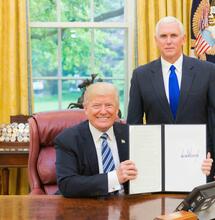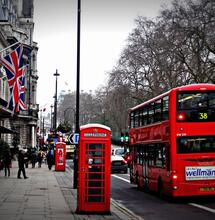Will UK Follow Malta?

Many in the cannabis industry see Malta's recent ruling to legalise cannabis for those who need it as a great decision and a huge step towards removing the stigma surrounding the market within Europe.
Malta looks all set to become the first country in the European Union to legalise cannabis. Under new rules, adults will be permitted to carry as much as seven grams of cannabis for personal use and grow up to four plants at home.
Associations will distribute seeds and plant material to allow cannabis to be grown at home. A person can only register with one association, which will help to regulate the amount people can purchase.
Malta's decisions follow the United Nations move to reclassify cannabis last year for its therapeutic uses. So, what other effects could the UN's decision have on the UK and European cannabis markets?
Malta has been an essential part of the European cannabis industry for some time. In 2018, Malta permitted the production and licensing of medical and research cannabis products. This included importing cal grade AAPI'sPI's or active pharmaceutical inputs to give them their full name.
This meant that any products containing cannabis manufactured in Malta could be exported into other areas of the EU via EU-GMP establishments and franchises. For this reason, many companies have either worked with or explored production in Malta already.
But even though Malta is already prominent in the world of European cannabis, could other countries be set to legalise the drug too?
As more EU countries embrace recreational use, perhaps the UK won't be far behind. Germany, Luxembourg, and Switzerland are all allegedly creating a legally regulated cannabis market. Some advocates worry that the UK will be left behind if they don't.
For Malta, the Equality Minister, Owen Bonnici, said the move to legalise would stop small-time cannabis users from facing the criminal justice system. It would also "curb drug trafficking by making sure users now have a safe and regularised way from where they can obtain cannabis".
It is believed that there is a risk for the black market to succeed if it is not appropriately managed. Legalising cannabis for adult use is a process. When handled poorly, it can only increase the opportunity for the black market to succeed.
"As was the case in Canada. When the government decriminalised in 2018, they only allowed limited access to the product and no access to derivatives such as confections and beverages. Something which has shown to be the most significant growth area and most approachable segment of adult use for new consumers.
The black market flourished in Canada by making it legal but not providing the product. Off the back of that came lower quality products, often laced with pesticides, without proper quality control.
However, when appropriately managed with high-quality production, innovative and protected distribution, the danger of the illicit market can be markedly reduced. This leaves consumers safe to explore a more holistic product with numerous health benefits.
The UK is the second-largest consumer cannabinoids market after the US. Legalising cannabis in the UK could be beneficial for the current CBD market. It could mean a drop in the price of CBD-based products. This would make them more affordable for local consumers and countries that goods are exported to.
The UK economy shrunk by a massive 9.9% in 2020 due to coronavirus restrictions and lockdowns. If conditions are imposed again, maybe the appeal of additional tax revenue via the legalisation of cannabis will prove too lucrative a consideration for the UK Government to ignore?











